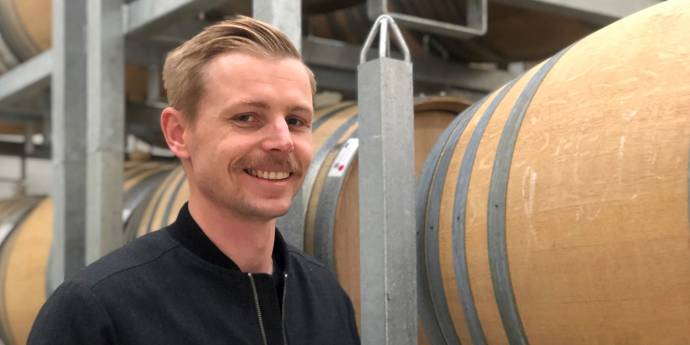COVID-19 governance snapshot - Nick Entwistle

05 May 2020
Nick Entwistle
Wine Marlborough Ltd - Director
Wairau River Wines - winery operations manager and winemaker
What was the impact of the COVID-19 lockdown on Marlborough vineyards?
We were in the first week of harvest and it was quite stressful because a decision had to be made on whether we were an essential industry. We were going to be given 48 hours notice as to whether that was yay or nay. Fortunately we’d developed a roles and responsibility matrix just before this happened so NZ Winegrowers took the lead as set out, and Wine Marlborough played more of a supporting role establishing what we could do as an industry to meet the requirements of MPI (Ministry of Primary Industries). Much of our contingency planning was focussed on natural disasters such as earthquakes and vineyard diseases, so the learning process from COVID-19 has been more around process, procedures and the personal impacts on staff considered non-essential during that period. From a board perspective, a lot of consideration is going into how we continue supporting our members when we can’t go see them.
What about your workforce – aren’t Marlborough vineyards reliant on overseas labour via the RSE scheme?
RSE workers do play a large role in supplementing the local vineyard labour workforce. There are two seasons for RSE workers, with the summer workers generally returning home at the end of harvest to countries like Thailand, Vanuatu, Samoa and Tonga. With the winter crews not being able to travel to New Zealand Horticulture NZ and NZ Winegrowers are working with MBIE and MPI on relaxing inter-regional travel restrictions for summer RSE workers still in NZ, so that they can travel to Marlborough for pruning. In a normal pruning season Marlborough needs about 2800 RSE workers to get through and we are going to fall well short of that number. With the potential rise in unemployment as a result of COVID-19, there is a strong focus on expanding training programs for local workers wanting to take up opportunities in vineyards. It’s a challenging time, as we don’t yet know where the required workforce is going to come from.
How are your markets holding up?
That is the question that is still up in the air for a lot of people. Those businesses that were supplying supermarkets and are strong in the online retail space are still seeing good demand. We’ve actually seen increased demand from key markets in Australia, United States and Canada with pre-emptive ordering during the early stages of lockdown. Although our logistics staff have been operating from home, they have been kept very busy trying to fulfil orders for our customers during a time of significant disruption. But those smaller boutique vineyards operating and selling through more traditional channels such as via cellar doors or direct into restaurants, their sales will have taken a significant hit as a result of the social distancing restrictions. There’s a real risk for us as an industry in losing the diversity these smaller producers provide, and also in relying too heavily on supplying supermarket chains, so the next few months will be a challenging and interesting time as wineries reassess how they bring their wines to market.
Ultimately, what kind of hit is the Marlborough wine industry likely to take from COVID-19?
That remains to be seen. It would be naïve to say there won’t be casualties along the way. We’re all going to try and chip in together and help each other out, but I know of at least four cellar doors in Marlborough that have already said that that won’t re-open for at least a year, if ever again.
Return to governance snaphots